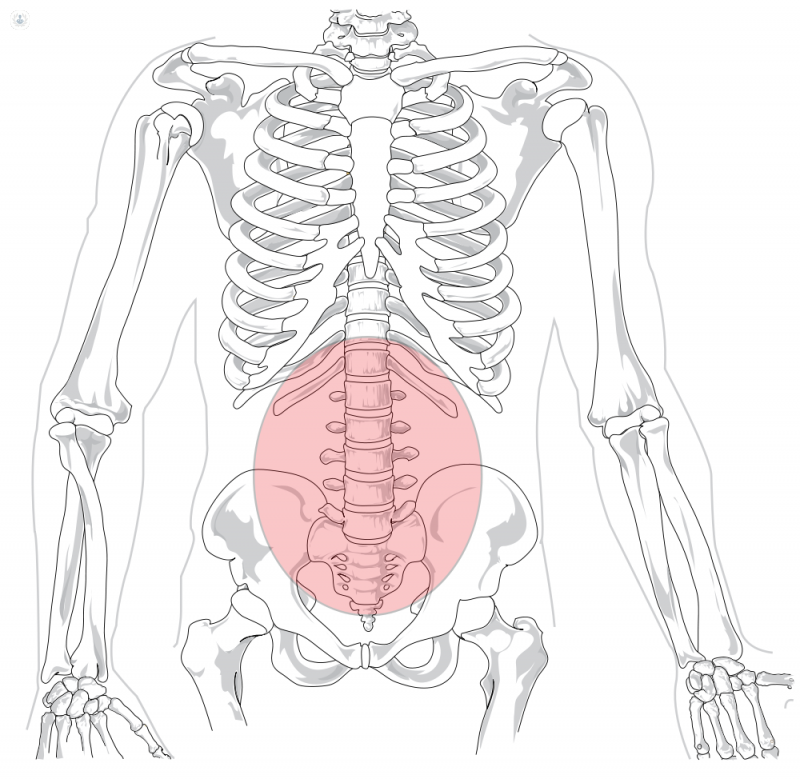Sciatica: causes and treatments
Escrito por:Sciatia is an extremely common type of nerve pain that occurs down the leg, and despite feeling uncomfortable, does not always need treatment. Dr Glyn Towlerton, leading pain management specialist tells Top Doctors what exactly sciatica is and the best ways to treat or manage it.

What causes sciatica?
Very simply, sciatica is nerve pain down your leg. It was first described by the ancient Greeks as pain in the hip, but we know it now as pain down the leg. Sciatica is really common – two to five percent of us will suffer it, but the good news is it will normally go away after a few weeks.
The usual cause of sciatica is a slipped disc and it is the pressure of the disc onto the nerve that causes nerve pain and inflammation. Occasionally, the cause of sciatica can be chemical and not compressive and it is important to recognize that there are other reasons why you get leg pain which are not related to slipped discs. If the pain persists or is abnormal, or you have other significant problems, then it is worth going to see a specialist or a provider of medicine to find out why.
Can sciatica be treated?
The good news is that sciatica often does not need to be treated and it is a self-resolving problem. The symptoms of sciatica may be around for a few weeks and can be quite disabling with some nerve pain, but it often does get better. However, if it does need treating then medications, manual therapies (such as physiotherapy) can be extremely useful to keep you mobile. If the sciatica persists thereafter, then epidural injections and surgery can be undertaken, but it is rare that cases of sciatica require this sort of intervention.
What is the best advice you can give to sciatica sufferers?
The best advice is simply to keep moving and to not worry. However, if you have the following presentations then do seek medical advice:
- If you have progressive neurological changes
- If you experience a loss of power
- If your bladder and bowel are involved, which is a very rare
- If you are young or very old
However, sciatica will usually go away and normally the best treatment for spine or spinal medicine is to keep moving. Good cardiovascular exercise will help as well.


